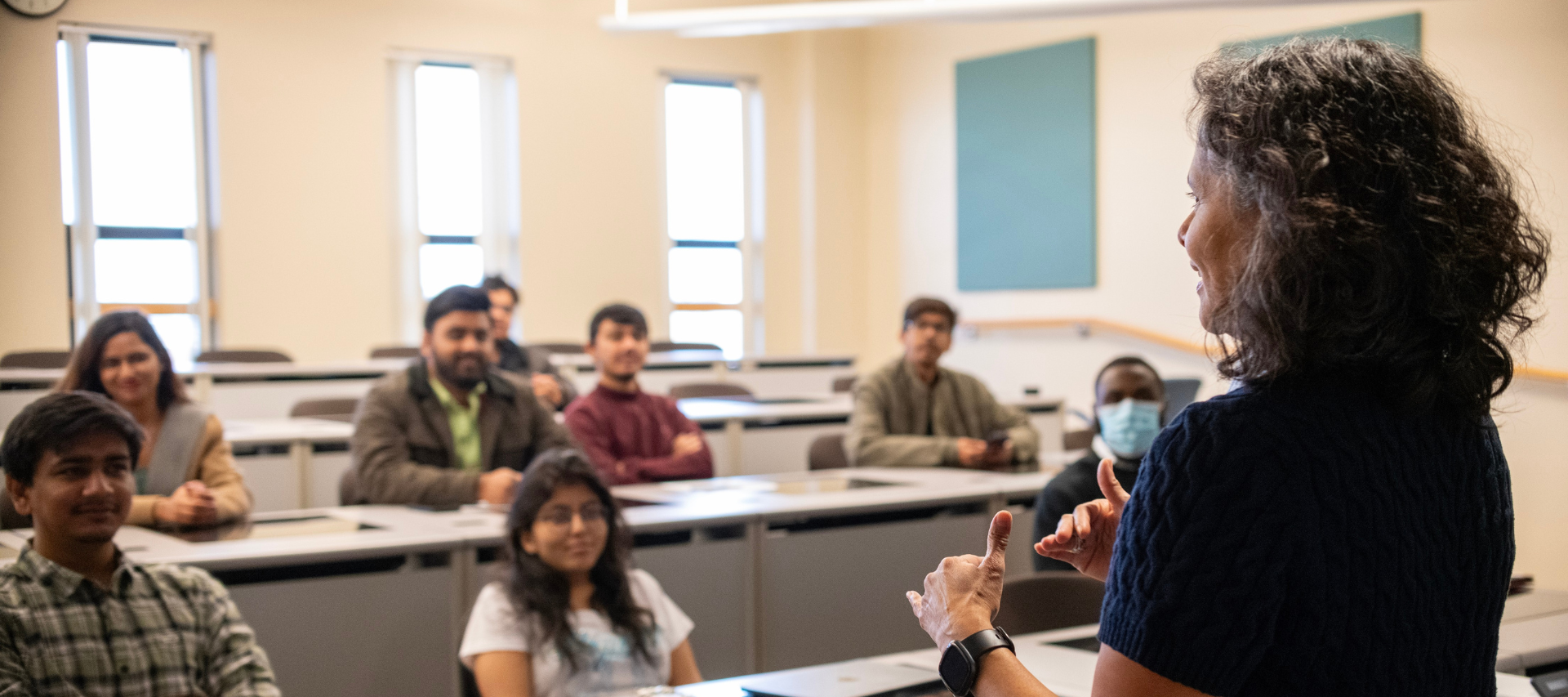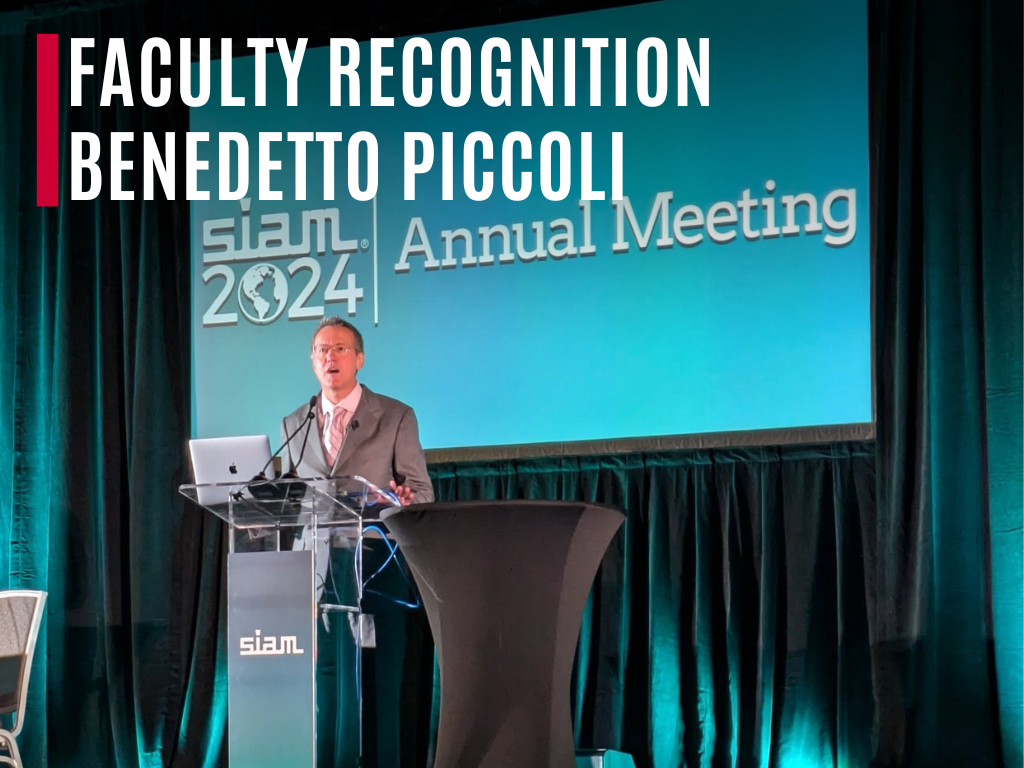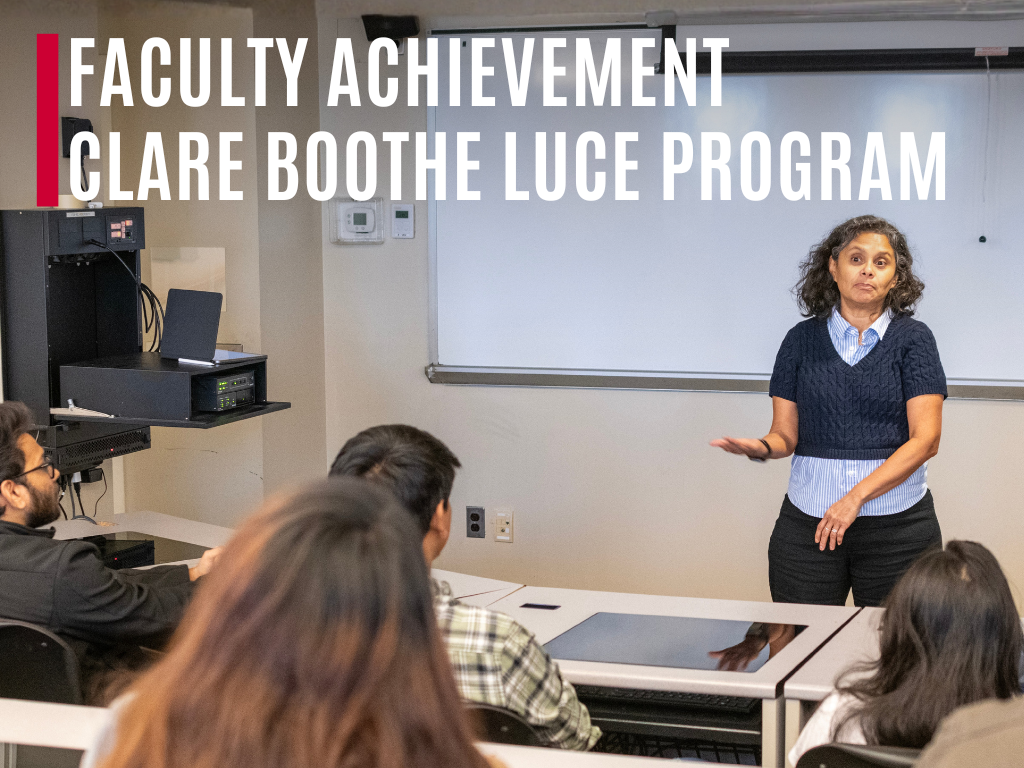
Mathematical Sciences (M.S.)
Welcome to the Mathematical Sciences Master’s Program at Rutgers University-Camden! The master’s program offers a comprehensive and rigorous education in mathematics and statistics and their interdisciplinary applications. Our program is designed to equip students with advanced mathematical knowledge and analytical skills necessary for success in various professional and academic pursuits.
TAKE THE NEXT STEP
The Mathematical Sciences Master’s Program provides a supportive and collaborative environment, where you can interact with faculty and fellow students who share your passion for mathematics. This dynamic community offers valuable opportunities for intellectual exchange, collaboration on research projects, and networking with professionals in academia, industry, and research institutions.
As a student in our program, you will have the opportunity to specialize in:
Pure Mathematics
The Pure Mathematics track focuses on theoretical aspects of mathematics, allowing you to delve into areas such as algebra, geometry, analysis, and topology.
Applied & Computational Mathematics
The Applied and Computational Mathematics track emphasizes the practical applications of mathematics, including mathematical modeling, numerical analysis, optimization, and data analysis.
Upon completion of the program, you will be well-prepared for a variety of career paths. Some graduates choose to pursue academic careers, teaching at the college level or earning a doctoral degree in mathematics or related fields. Others find rewarding opportunities in research and development, data analytics, consulting, finance, engineering, and various other industries that value strong quantitative and analytical skills.
Program Overview
DETAIL | DESCRIPTION |
|---|---|
| DEGREE | Master of Science (M.S.) Accelerated option available |
| CREDITS | 30 credits |
| FORMAT | Full-time or part-time, on-campus |
| DURATION | 4-5 semesters |
| FUNDING | University and Graduate School Funding Available (Partial funding only) |
Mathematical Sciences Community in Action
Get to know this program through archived stories—then discover what sets Rutgers Graduate School-Camden apart. From the Recording Rutgers podcast to faculty spotlights, campus life, alumni journeys, and student experiences, you’ll find a “Community in Action”, grounded in connection, purpose, and possibility.
-
Five-Year, $700,000 Award Supports Women in STEM
For women pursuing careers in science and mathematics, sustained mentorship, faculty leadership, and institutional investment are often decisive in whether opportunity leads to long-term participation. At Rutgers University–Camden, a new five-year, $700,000 award from the Henry Luce Foundation’s Clare Boothe Luce Program for Women in STEM will support professorships and initiatives designed to strengthen those… continue reading
-

Unlock New Insights into the No-U-Turn Sampler
The No-U-Turn Sampler (NUTS) is one of the most influential… continue reading
-

Pioneering Research in Traffic & Control Theory Earns Recognition
A transformative leader in applied mathematics, Benedetto Piccoli serves as… continue reading
Featured Courses
View the list of Course Descriptions.
MATHEMATICAL REASONING
(56:645:508)
This course focuses on key math writing skills: reasoning (proof analysis) and precision (formulating and writing logical statements), with examples and guidelines.
GEOMETRY
(56:645:532)
This course explores Euclid’s geometry, its foundations, Euclidean and hyperbolic geometries. Covers parallel postulate, impossibility of angle trisection, and cube duplication.
COMBINATORIAL OPTIMIZATION
(56:645:538)
This course explores algorithms for discrete optimization problems. Topics include integer programming, linear programming, greedy algorithms, dynamic programming, and approximation algorithms.
PARALLEL SUPERCOMPUTING
(56:645:542)
The course explores parallel supercomputer program design, covering programming models, performance optimization, application examples, cost models, and performance analysis.
INDUSTRIAL MATHEMATICS
(56:645:560)
Students employ MATLAB and C++ for problem-solving, addressing real-world industry issues. Topics span Monte Carlo methods, circadian rhythms, and more.
INTRODUCTION TO THE THEORY OF COMPUTATION I (56:645:533)
The course introduces formal languages, automata, and computability. Covers regular languages, finite state automata, context-free grammars, pushdown automata, Turing machines, decidability, undecidability, Rice’s theorem.
Admissions Requirements
DETAIL | DESCRIPTION |
|---|---|
| TRANSCRIPTS | A transcript showing the completion of an undergraduate degree in science or mathematics, with a GPA greater than 3.0 If your degree is not in science/mathematics, then you need to have taken Calculus I, II, and III, and Differential Equations and/or Linear Algebra. These courses could be taken anywhere where they are offered. |
| LETTERS OF RECOMMENDATION | Two letters of recommendation |
| PERSONAL STATEMENT | A personal statement. |
| STANDARDIZED TEST | GRE Scores (Encouraged but not required) |
Application Deadlines
Preference is given to those submitted before the deadline for both decisions and funding opportunities. Applications received after the deadlines will be considered based on available space and budgetary constraints.
Fall
MAR 15
Spring
OCT 15
Summer
NOT OFFERED
Reach Out to Us
Let’s begin a conversation about your academic and professional goals. If you have questions regarding the curriculum, faculty, admission criteria, or committee, please feel free to contact the Graduate Program Director. For administrative inquiries concerning the application process, campus, tuition, and fees, reach out to the Graduate School. We are dedicated to assisting you from application to graduation day.
PROGRAM CONTACT
Dr. Haydee Herrera-Guzman
Graduate Director
haydeeh@camden.rutgers.edu
(856) 225-2667
GRADUATE SCHOOL CONTACT
Erick E. Watt-Udogu
Assistant Dean, Graduate School-Camden
erick.watt.udogu@camden.rutgers.edu
(856) 225-6149
Take the Next Step.
We invite you to explore the boundless opportunities that await you here, where a world-class faculty, diverse community, and innovative curriculum converge to nurture your intellect and foster your professional growth. Your future starts with a simple yet significant act – learning more about the exceptional programs we offer. So, why wait? Start your application journey with us, and together, we’ll unlock a future filled with possibilities and endless success.


